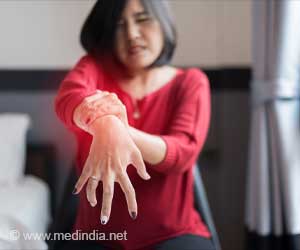A new study has found that the human brain reacts quickly when encountering another person's physical pain, but compassion for psychological pain takes longer to register.
A new study has found that the human brain reacts quickly when encountering another person's physical pain, but compassion for psychological pain takes longer to register.
In the study, lead researcher Mary Helen Immordino-Yang in the University of Southern California and colleagues used functional MRI to analyze the brains of 13 people as they responded to stories designed to provoke a range of emotions.Immordino-Yang reported in the online edition of the Proceedings of the National Academy of Sciences that it was easy to get people's brains to react to another person's physical pain. All it took was a few seconds of video.
However, the brain's response to social or psychological situations lingered for much longer. Compassion for another person's social or psychological pain also activated some of the same brain areas triggered by compassion for physical pain, and particularly the region responsible for gut feelings, known as the anterior insula.
"That area has been implicated before in all sorts of studies about emotion, empathy and disgust," said Mary Helen Immordino-Yang, a cognitive neuroscientist at the University of Southern California.
"We specifically set out to look at admiration because it's a social emotion that's important for the establishment of moral systems, and it shows people what social behaviors are valued in society," Immordino-Yang told LiveScience.
To reach the conclusion, scientists used short stories based on real-life people to stir social emotions, such compassion for physical or social pain, or as admiration for virtue or skill.
Advertisement
A main difference among the social emotions showed up in a central brain hub known as the posteromedial cortex, which corresponds to a person's consciousness or sense of self. Emotions relating to physical situations activated brain systems relating to musculoskeletal control, while emotions about social or psychological situations activated the gut-related area.
Advertisement
Admiration for virtue showed about as strong a brain response as compassion for social or psychological pain, and the same lingering effect. But admiration for physical skill seemed to register lowest in the study.
Source-ANI
ARU













